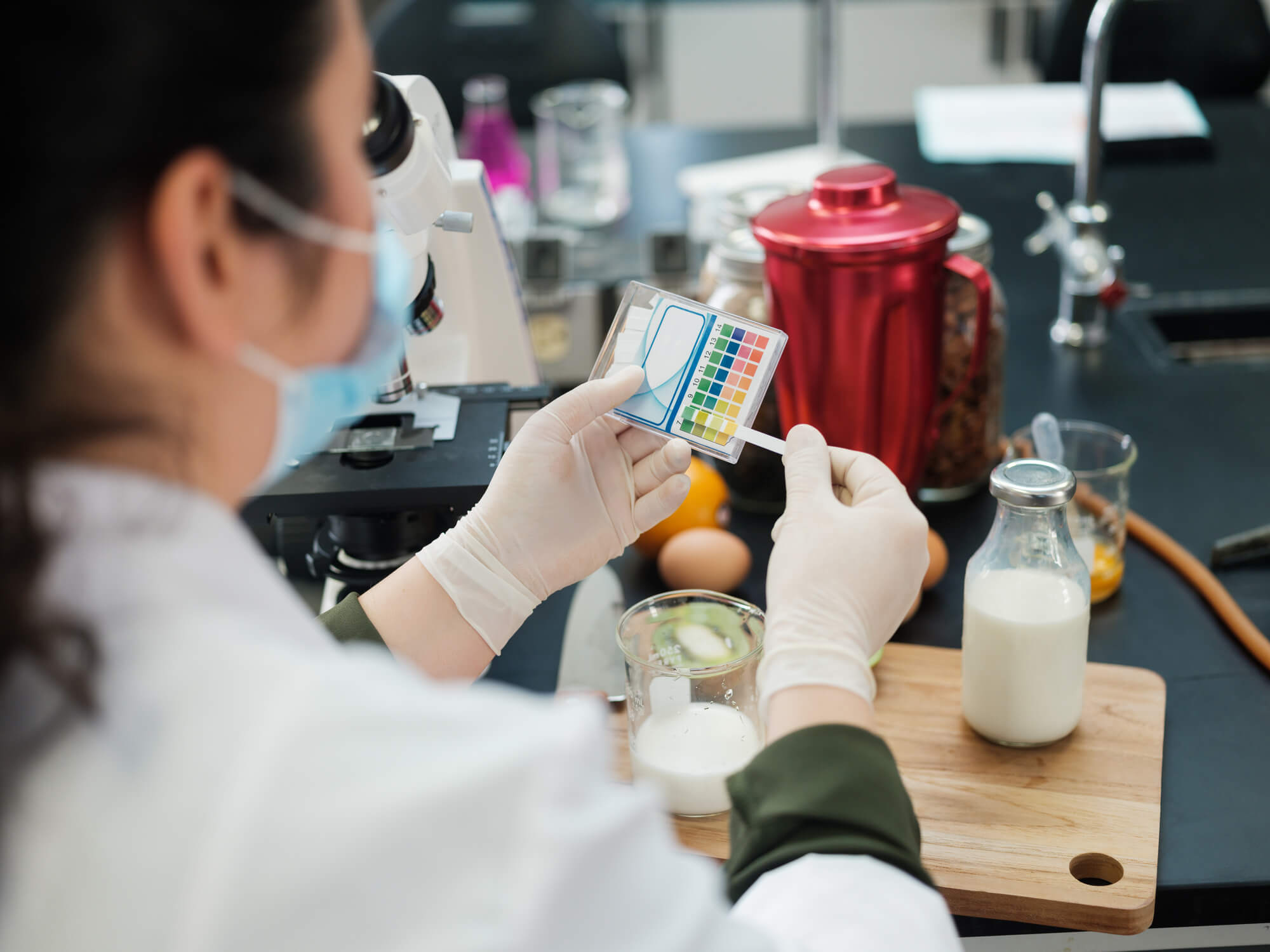Food process design
Overall Course Objectives
To enable the students to dimension, design, identify and evaluate alternative or novel process technologies, scaling, optimize and plan food processing plants. The focus is on the understanding and modelling of the interaction between resources (inclusive the raw material, energy) and the process, and the influence of processing on end product quality. The course enables understanding and application of digitization/digital twin in food manufacturing.
See course description in Danish
Learning Objectives
- Apply flow-sheeting tools to gain an overview over material and energy streams through a production plant.
- Analyse a complex production plant and identify its basic unit operations and other process steps.
- Identify interactions between product attributes and process parameters to gain knowledge on process operation and product quality.
- Identify quality parameters and potential alternative process technologies (e.g., novel processing, Ohmic heating, Microwave, Vacuum cooling, etc) with the possibility of improving sustainability.
- Apply and evaluate different tools for process control and optimization of process / production.
- Perform process calculations including economical considerations concerning capital and running costs.
- Validate calculations and assumptions in relation to food production.
- Dimensioning of equipment for use in industrial food production.
- Understand and apply digitization/digital twin in food processing
- Design and evaluate a food processing plant.
- Write a technical report in groups based on a case related to the food industry.
- Present and discuss the process design considerations orally.
Course Content
The course focuses on the production of both solid and liquid foods. The course will apply knowledge of process technology (mass and heat transfer, fluid mechanics, and unit operations) in the calculations, process simulation, dimensioning and modeling, digitization of food processing plants. The curriculum focuses on planning of food production systems, identification of key interactions between manufacturing processes and product characteristics, requirements of the food industry, interactions in process systems, process optimization and application of quality control. The individual topics are illustrated with examples in the form of tasks – both practical and theoretical – as well as case studies. There will be guest lectures and company visits will be arranged.
Recommended prerequisites
23711/23511, Or similar competencies
Teaching Method
Lectures, seminars, group work, excursions and home assignments.
Faculty
Remarks
The course is intended for students beyond bachelor level who have some experience with process technology, unit operations and calculations in relation to fluid mechanics and heat transfer. A full day excursions is expected in connection with the visit to an industrial food production plant.
Limited number of seats
Maximum: 30.
Please be aware that this course has a limited number of seats available. If there are too many applicants, a pool will be created for the remainder of the qualified applicants, and they will be selected at random. You will be informed 8 days before the start of the course, whether you have been allocated a spot.




